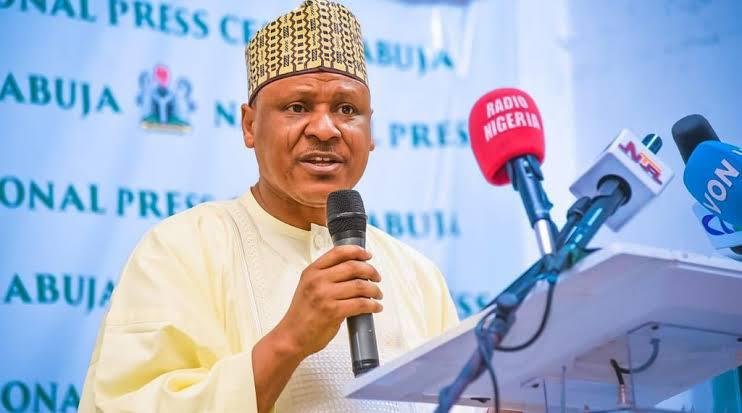THE Federal Government of Nigeria and the Christian Association of Nigeria (CAN) have expressed sharply contrasting positions following recent allegations by United States Senator, Ted Cruz, who accused the Nigerian government of enabling the “massacre” of Christians across the country.
News Point Nigeria reports that Cruz, while introducing the Nigeria Religious Freedom Accountability Act before the US Senate, claimed that government officials in Nigeria were “ignoring and even facilitating the mass murder of Christians by insurgents,” and called for sanctions against officials allegedly complicit in such acts.
The Texas lawmaker further alleged that Christian communities were being targeted, displaced, and forced to live under “blasphemy laws” in several northern states.
However, the Federal Government on Wednesday strongly dismissed the allegations as “false, ignorant, and baseless,” describing them as a deliberate distortion of facts.
In a statement sent to News Point Nigeria,, the Minister of Information and National Orientation, Mohammed Idris, said the allegations did not reflect the true situation in Nigeria.
“This is not true. It’s false to claim that over 20,000 churches have been burned or that 52,000 Christians have been killed. Where did he get those numbers from? This is absolutely absurd and unsupported by any facts,” Idris said.
He emphasized that no Nigerian government official or institution supports or colludes with violent extremists.
“No Nigerian official will ever indulge in the act of siding with violent extremists to target any particular religion in this country. Nigeria is a multi-faith, tolerant nation.
“The government remains firmly committed to ensuring religious freedom for all citizens,” the Minister declared.
While acknowledging that violent extremism has claimed lives of both Christians and Muslims across the country, Idris insisted that there was no calculated attempt by the government to target or persecute any faith group.
“It’s unfortunate that some extremists have killed both Christians and Muslims almost everywhere they operate. But it’s false and unfair to suggest that the Nigerian state supports or ignores such acts.
“The government is committed to protecting every Nigerian without discrimination,” he said.
The Minister reaffirmed that the country’s security forces remain resolute in combating terrorism, banditry, and all forms of violence, while ensuring justice for all victims irrespective of their religion or ethnicity.
However, reacting to the controversy, the Christian Association of Nigeria (CAN) acknowledged that while Nigeria is home to multiple faiths, Christian communities in several parts of the country have continued to suffer targeted attacks and killings.
In a statement by its President, Archbishop Daniel Okoh made available to News Point Nigeria, CAN called on the government and security agencies to act decisively and transparently to end the killings and protect vulnerable communities.
“Many Christian communities have indeed suffered attacks, leading to painful loss of lives and displacement.
“These realities are painful reminders of the urgent need for the government and security agencies to act decisively to protect every citizen,” Okoh said.
CAN lamented that the cries for justice and protection have “too often been met with delay or denial,” and called for urgent and equitable actions to safeguard the lives and properties of Christian citizens.
“The pain of Christian families torn apart by violence must never be treated as mere statistics. We renew our call on government to ensure perpetrators face the full weight of the law,” Okoh said.
The Association also highlighted its sustained advocacy efforts, both locally and internationally, to draw attention to the plight of persecuted Christians.
According to the statement, CAN has written to the International Criminal Court (ICC) in The Hague, partnered with the World Evangelical Alliance and the Lausanne Movement, and developed internal mechanisms to record incidents of religiously motivated killings.
“These sustained efforts demonstrate CAN’s commitment to justice, peace, and the protection of Christian communities under threat,” Okoh added.







